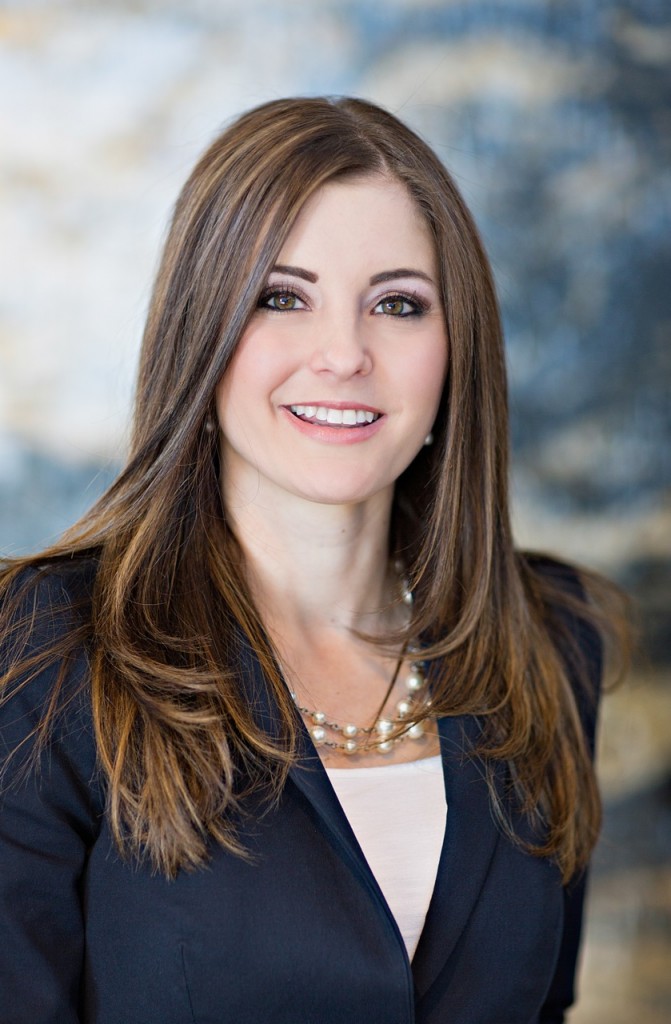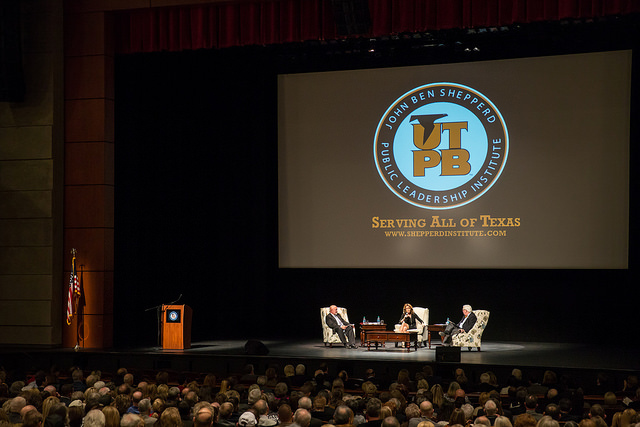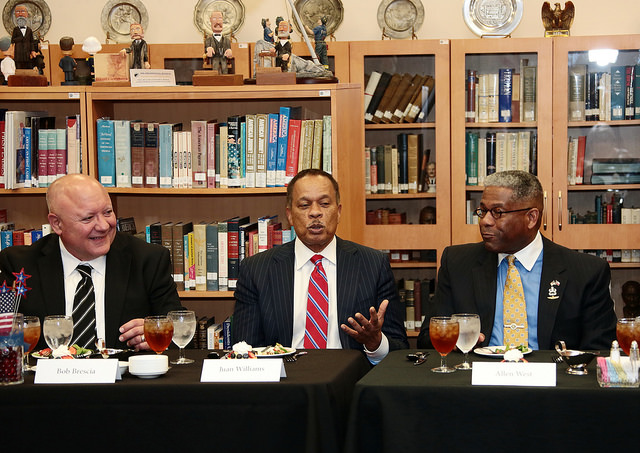Even during the most challenging times, or rather especially during the most challenging times, leadership means strengthening bonds.
by Tony Burke
An organization without effective leadership is doomed to fail. Business failure becomes all too common a sight during severe industry-wide downturns. Despite hopeful whispers that this down cycle has already given its worst, the Permian Basin is beset on all sides.
This is not to say that the world of oil and gas is devoid of leadership. Quite the contrary; the ravages of this historic downturn have revealed the fortitude of the many companies that are here to stay.
“Leadership is the demonstrated ability to set direction, to mobilize commitment, and build capabilities toward a shared goal,” said Dr. Robert Brescia.
If that definition sounds like it came straight from a textbook, well, that’s just the level of discourse one comes to expect after speaking with Brescia, the executive director of the John Ben Shepperd Public Leadership Institute, overseen by the University of Texas of the Permian Basin (UTPB).
“Leadership in tough times reveals a whole lot about character. Why is that?” asked Brescia. “When things are ‘blowin’ and goin’,’ as they say, and you’re riding high, a lot more detail is glossed over and is not visible. When things are not going so well, it’s a test of a leader’s character.”
“I think being able to guide people toward a certain outcome is what leadership means to me,” said Claire Chase, director of government relations at Mack Energy, taking cues from her military boarding school education.
“This industry is full of pioneers,” said Chase. “When we’re faced with a problem, we don’t need people to tell us how to fix it. With every downturn, we all go through that process. How do we improve, become more efficient? When times are good and you’re making a lot of money, it can be hard to keep your feet on the ground.”
“Most leaders, during the tough times, cut out training and development and want to bring their expenses down,” said Chris Garrett, president and CEO of Bulldog Safety Anchors. “In down times, it’s a perfect time to continue the training and get [your people] developed because we know the good times will come back, [and we need to] be prepared for that. When times are good, it makes it harder to have meetings and come together and talk about those things.”
With few answers to the repeated public drubbings visited upon the oil and gas industry, it is not unreasonable for an outsider to question the efficacy and intentions of leaders within that community.
To question is fair, but to write off would be a mistake. While historically difficult market conditions have led to this gut-check moment, this unveiling of character has returned encouraging results. A ray of hope in an abyss. At worst, oil and gas would seem no worse off than other major industries from a leadership standpoint.
Many agree that one of the most important components of leadership is the ability and desire to develop new leaders.
“I do think there was a gap for a while, where the industry was bad at [developing new leadership],” said Chase. “We have the older generation working at companies right now. Then there is a hole, and then you have the 25-40 age range.”
Chase does what she can to foster new leadership from her post with the Artesia, N.M.-based Mack Energy, which includes advocating for women with technical backgrounds. As an example, Chase cited the recent Women In Power conference in Albuquerque.
“I try to make myself available to women I know,” she said. “I love hearing about [women succeeding in the industry]. There were probably 50 young women from technical backgrounds [at the conference] who never would have thought oil and gas could be the right field for them, at least not before we spoke to them.”
“I think they [leaders in oil and gas] are as good as any other industry,” said Brescia. “I have personal experience with the automotive industry, [and] I can tell you without shadow of doubt that that is a ‘dog-eat-dog’ industry. I don’t think leadership is taught there outside of survival tactics.
“In the oil industry, there is much more caring going on that I have observed. People do put teeth into leadership training programs of all kinds. When the going gets tough, the industry does not back away from its communities. It strengthens its bonds,” he added.
Brescia’s commentary on the auto industry notwithstanding, Chris Garrett, another contemporary leader in the Permian Basin’s oil and gas community, owes his philosophies and success to his time as finance director for an exemplary Odessan auto dealer prior to his jump to the oil and gas service industry.
Seeking more time with his family, Garrett made the transition from autos to oil in June of 2010, around the time the Shale Revolution took shape. When Garrett decided to join the family business started by his father-in-law, Buddy McDonald, he had already experienced the volatility of oil markets.
“I felt the negative part of the oil industry while in the automobile industry, because when times were good, everyone was buying trucks,” said Garrett. “From what I understood, oil rose for four or five years, then fell for two.”
As finance director under Collin Sewell, and the Sewell Family of auto dealerships in Odessa, Chris Garrett soaked up many lessons that have continued to serve him well in his career transition and onward to today. Chief among those lessons was the idea of a leader immersing himself in his business.
“I remember what Collin Sewell did. He and his family had been in business since 1911. What I saw from his leadership was, after [schooling at] TCU, he had the opportunity to go straight into the office and be the dealer,” recalled Garrett. “But first, he worked his way through the parts department, and the service department, and saw every part of the business before taking over the dealership.”
Chris, in his own way, took this to heart when taking on his initial leadership role at Bulldog Safety Anchors.
“I wore the suits, and I wore a tie to work every day for 18 years of my life,” he said. However, when the time came to become an oilman, Garrett illustrated his mindset by describing the purchase of his very first cowboy hat. “I was sitting at a bar, and I saw this guy with a great hat. His hat had this character that I knew I needed to have. It was worn, and sweaty, and nasty. I offered him $100 for that hat,” he said.
“You’ve got to get into the job and know what your people are doing,” Garrett continued. “Buddy told me I didn’t have to do that. But I felt that if I don’t know what those guys do, then they’ll never respect me when I’m in that office.”
“We manufacture the anchors for well-service rigs,” said Garrett. “When I came out here, [Buddy had started this company] as a hobby for himself, and he was selling about 500 anchors a month.”
Reminiscing about those early days, Garrett recalls McDonald, 72 at the time, keeping track of his sales on Big Chief Tablets, in pencil. “We got everything modernized a bit,” said Garrett.
In addition to learning the business at very level, Garrett used his business acumen to lead and grow BSA from a 500-anchors-per-month company to peaking at approximately 10,000 per month anchors just before the downturn. The current industry climate has taken a significant bite out of BSA’s sales, but Garrett is keeping his eyes on the big picture, as any good leader should do.
“It’s part of our DNA; the ups and downs. Your company grows with you, so if you’re not growing as a leader, then your company is not going to grow,” he said. “These tough times test us and we get to find out where we really place our faith.”
Garrett couldn’t help but reference a popular bumper sticker that reads, “Please God, give us another oil boom, we promise not to piss it away this time.”
Claire Chase holds Mack Energy, another family business of sorts, as a prime example of a well-led company that prioritizes empowerment and giving back your community.
“It’s important to make a difference. Chase Foundation provides scholarships to every graduating high school student with a certain GPA. I think that makes a lot of difference in the community,” she said.
Downturns cause a lot of pain, and Chase appreciates the way Mack Energy leads by example, as an independent company, in helping to absorb the impact of these harsh financial times.
“We tried to take as much of the burden as we could in order to not affect the people who work for us, and not having to lay people off. We tried to make sure that our staff didn’t have to take major pay cuts. We started with the family first, then the upper management,” she said.
“In my current job with Mack energy, my husband Chance and his family own the company. His business sense is amazing to watch. Everyone sort of rallies around him,” said Chase. “It’s really nice to see this family lead by example. That has been an example for me in my life every day.”
“The times we’re going through,” said Brescia, “a leader has to practice a maximum of benevolence and compassion for those who are at the tail end, feeling the [industry’s] whiplash the strongest.”
“A crucible is something that has occurred [in life] that is so gut-wrenching that it forced you to reach down into your intestinal fortitude to do the right thing,” he said. “Can we do the right thing when it counts? Can you be a friend to someone when times are tough? A real friend is someone who’s running in the door when everyone else is running out.”
Brescia intends to help people answer just such questions through his plans for the JBS Institute. The plans include building a brand-new Crisis Learning & Leadership Center (CLLC), which would host simulated training and role-play events based upon historical scenarios, such as the Cuban Missile Crisis, for groups of up to 20 participants at a time. The JBS CLLC is part of a planned three-campus network comprising similar facilities at Southern Methodist University and another in Simi Valley, Calif.
Brescia, in his role with the JBS Institute, has hosted debates at UTPB, including one that drew raves from participant Juan Williams, of FOX News. Brescia is a two-time author with a third book on the way, entitled, Destination: Greatness! Creating a New Americanism, due in the fall of this year.
“This is a minor blip,” he said. “So my advice to CEOs and top managers is stay the course… Try to be more of an ocean liner than a speedboat… Frac’ing—all that came to us in the [previous] downturn, and then we employed that to our advantage.”
“I think you just can’t get enough [leadership], you’ve got some people doing things they way they’ve always done it, but the times are a-changing and you’ve got keep up with that,” said Garrett.
“We all go to work every day with the singular goal of producing oil. We don’t always think about the ways we’re affecting others in terms of leadership,” said Chase.
“We are an industry of people who solve problems,” she added. “When you have some time to think about these solutions, and then things pick back up again… that’s good for the industry as a whole.”
Tony Burke is a freelance writer and the assistant editor of PBOG. He can be reached at tburke@zacpubs.com.













